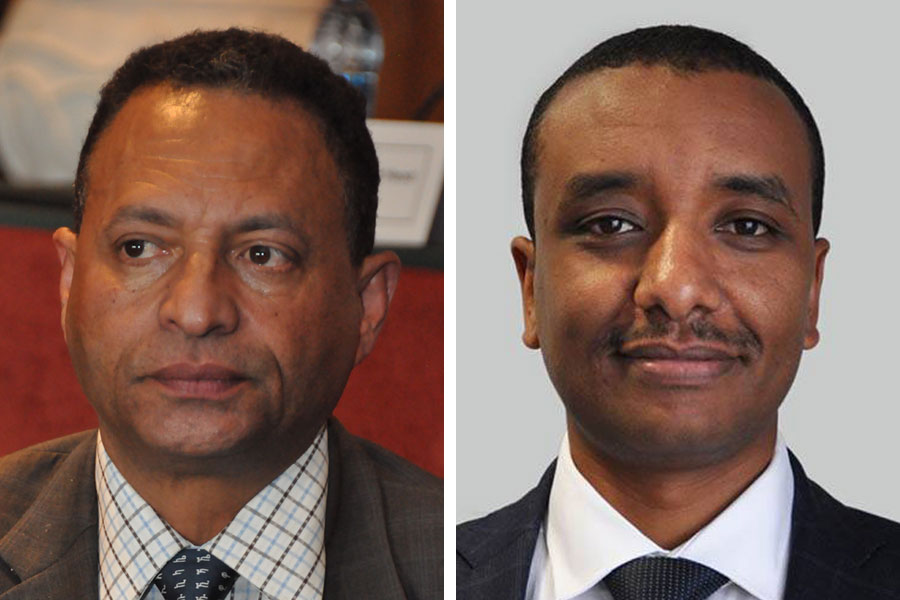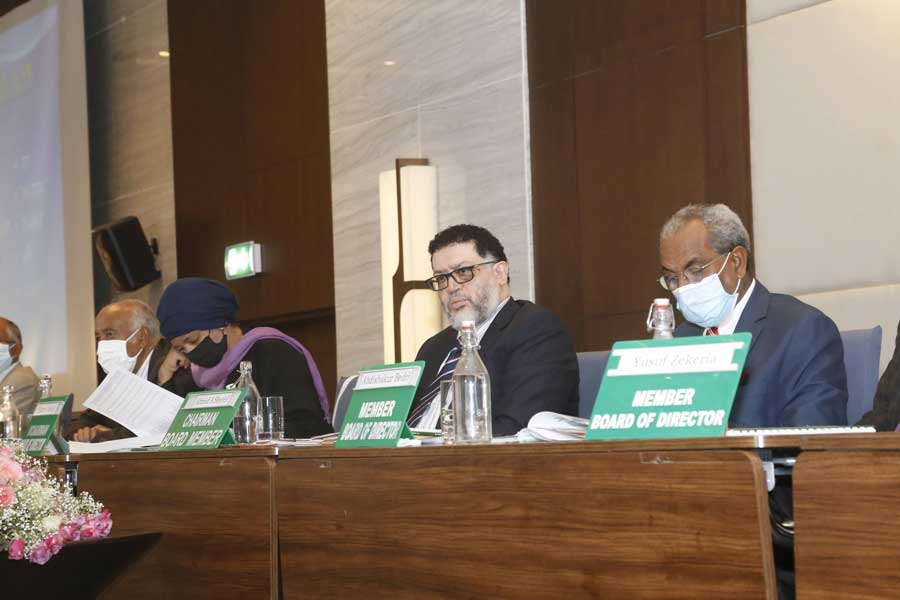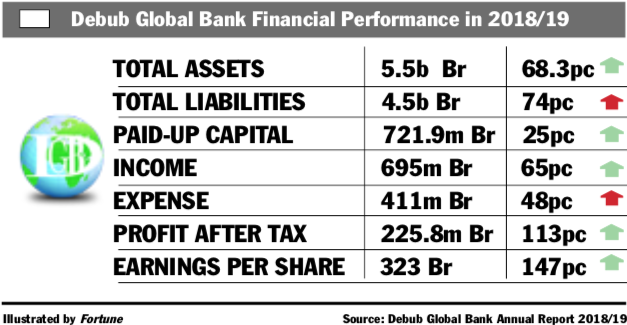
Fortune News | Jan 01,2022
Jun 10 , 2023
By BERSABEH GEBRE ( FORTUNE STAFF WRITER )
In a new regulatory move, commercial banks and microfinance institutions are set to pay insurance premiums to establish a safety net for their depositors. Should the proposed legislation be enacted, this mandate would be managed through an insurance fund.
It is a development that underscores the authorities' desire to fortify the financial sector against economic headwinds and ensure the protection of depositor funds. It also reflects a global trend towards safeguards in the banking industry.
Whether these new safeguards bolster confidence or result in an increased financial burden that hampers growth has operators and keen observers of the financial sector debating for the weeks to come.
The plan requires that the financial institutions contribute an initial premium fee of 0.05pc of their deposits, and annual premiums that represent 0.3pc of their four-quarter average deposit balance, paid in four instalments. These charges, if approved, could introduce 60 billion Br in premium charges to Ethiopia's banking industry. It comes at a time when deposit mobilisation across the country's 85 financial institutions has reached a staggering 2.05 trillion Br.
The bill does not only apply to existing banks but also targets new entrants in the sector. Commercial banks that receive operational licenses after the directive comes into effect and have deposits lower than 12 billion Br will be required to pay six million Birr premiums. Microfinance institutions with deposits less than 200 million Br will pay a 100,000 Br premium.
The draft directive, dispatched last week by Mergia Wakweya, the Ethiopian Deposit Insurance Fund (DIF) CEO, has now been presented to the heads of 31 commercial banks and 54 microfinance institutions. Central bank regulators are seeking consultation meetings with these financial institutions' heads this week.
The proposed mandate has its roots in efforts by the National Bank of Ethiopia (NBE) to boost depositor confidence and secure the financial system's stability. This move to establish the Fund was endorsed by the Council of Ministers two years ago.
In the event that an institution fails to repay depositor money, penalties are in place. The central bank could revoke the banking license of the offending institution, while the Fund would reimburse the depositors. The Fund's proposed coverage minimum of 100,000 Br was decided upon recognizing that most, not more than four percent of depositors in Ethiopia hold larger than 200,000 Br in their accounts.
The Fund's board oversees this new framework and includes representatives from the central bank, banking supervision, microfinance supervision, and two from the banking and insurance industry. The board membership comprises Solomon Desta, vice governor; Frezer Ayalew, head of banking supervision; Sintayehu Desalegn, head of microfinance supervision; Dereje Zenebe, president of Zemen Bank; and Teshome Abebe, CEO of Dire Microfinance.
"We function just like any other board," Solomon told Fortune.
Among the responders to the proposed bill, Mulgeta Berhane, president of Dedebit Credit & Saving Institutions, a microfinance institution established in 1997, welcomed the proposed insurance. His institution serves 1.3 million depositors across 189 branches.
However, Mulugeta voiced concerns over the lack of detail in the bill, noting that depositors have faced significant hardships due to the two-year northern conflict, which forced people to borrow at steep interest rates.
The NBE's previous attempt to respond to the commercial banks' financial strains by mandating the purchase of five-year treasury bills has not satisfied the industry.
Worku Lema, vice president of Oromia Bank, expressed support for the new bill and its potential to boost depositor confidence in case of a bank failure. However, he argued that the initial and annual premium rates were high. He proposed a more extended payment schedule of up to two years for the banks.
Experts are beginning to scrutinise the premium rates set out in the directive. They note that the initial premium rates and fixed amounts are sensible, yet the annual rate is considerably higher than in several sub-Saharan countries.
Abdulmenan Mohammed, a seasoned observer of Ethiopia's financial sector, questions the rationale for the flat rate applied to all banks, regardless of their risk profile. In his view, the annual fixed rate of 0.3pc is quite burdensome compared to rates in Kenya (0.15pc), Tanzania (0.15pc), and Nigeria (0.05pc). Drawing upon a hypothetical example, he argued that the annual rate for a bank with a deposit base of 150 billion Br would equate to 450 million Br, which he argued is a significantly high burden.
"The current proposed rate creates an undeniably substantial financial encumbrance for the banks," Abdulmenan told Fortune.
While the proposed regulations seek to bolster depositor confidence and stability in the financial system, they may also introduce new challenges. Some critics argue that the measures could inadvertently exacerbate the liquidity issues they aim to mitigate, given the substantial size of the insurance premiums. If adopted, the new requirements could cause financial institutions to reassess their deposit strategies, risk profiles, and business models.
Solomon, the vice governor, dismissed concerns about a liquidity crisis in the banks, despite some industry experts warning of potential liquidity issues.
In a sector where new and smaller entrants are already contending with established competitors, the flat premium rate across all banks, irrespective of size or risk, could inadvertently create a more challenging environment for these firms.
PUBLISHED ON
Jun 10,2023 [ VOL
24 , NO
1206]

Fortune News | Jan 01,2022

Fortune News | Oct 12,2025

Fortune News | Aug 07,2021

Fortune News | Aug 21,2021

Fortune News | Jun 24,2023

Fortune News | Jan 02,2021

Exclusive Interviews | Jan 05,2020

Fortune News | Mar 13,2021

Commentaries | Jan 26,2019

Fortune News | Jan 25,2020

Dec 22 , 2024 . By TIZITA SHEWAFERAW
Charged with transforming colossal state-owned enterprises into modern and competitiv...

Aug 18 , 2024 . By AKSAH ITALO
Although predictable Yonas Zerihun's job in the ride-hailing service is not immune to...

Jul 28 , 2024 . By TIZITA SHEWAFERAW
Unhabitual, perhaps too many, Samuel Gebreyohannes, 38, used to occasionally enjoy a couple of beers at breakfast. However, he recently swit...

Jul 13 , 2024 . By AKSAH ITALO
Investors who rely on tractors, trucks, and field vehicles for commuting, transporting commodities, and f...

Nov 1 , 2025
The National Bank of Ethiopia (NBE) issued a statement two weeks ago that appeared to...

Oct 25 , 2025
The regulatory machinery is on overdrive. In only two years, no fewer than 35 new pro...

Oct 18 , 2025
The political establishment, notably the ruling party and its top brass, has become p...

Oct 11 , 2025
Ladislas Farago, a roving Associated Press (AP) correspondent, arrived in Ethiopia in...